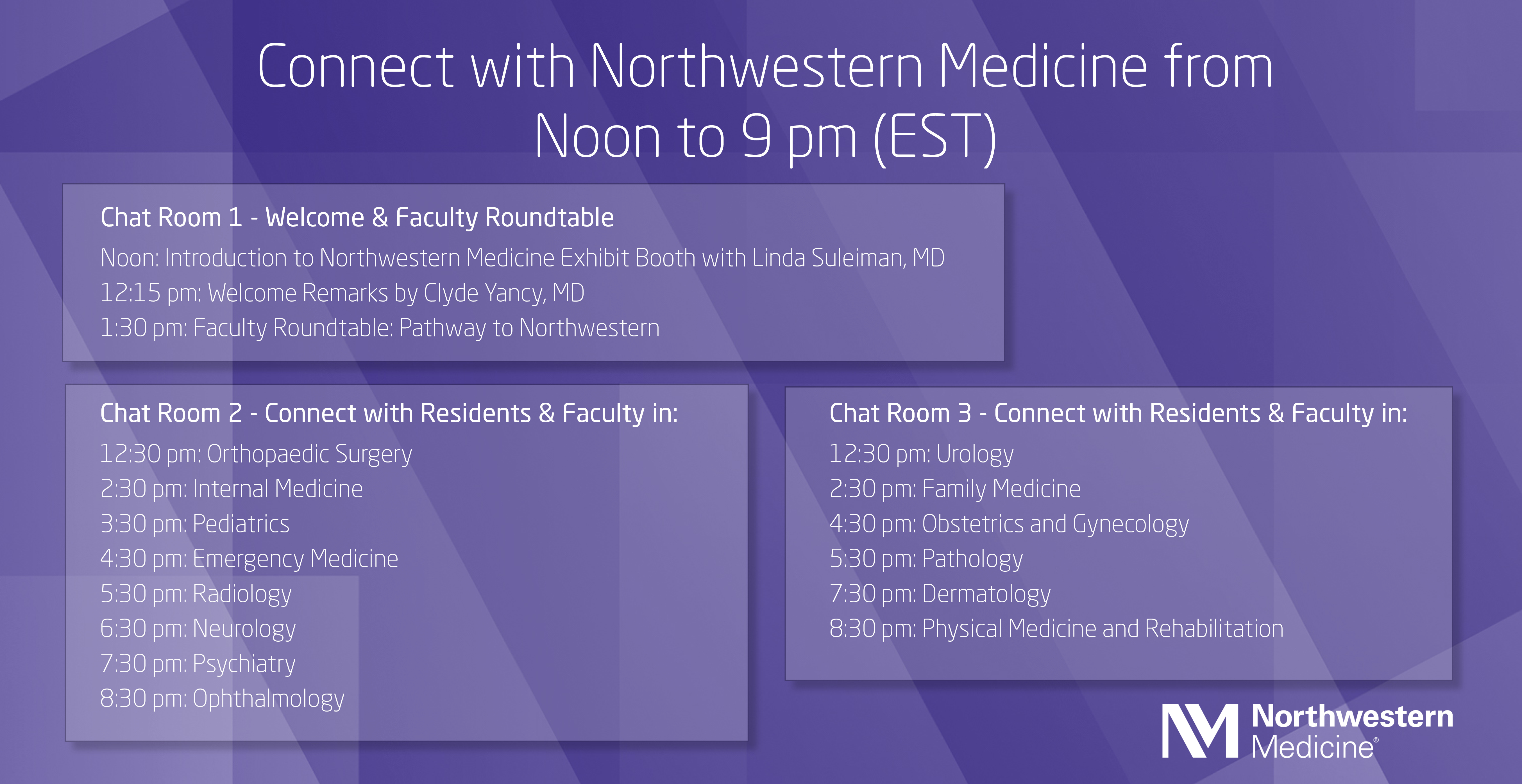Online Hours
Hours displayed in:Eastern Time (US & Canada)
About
 |
Giveaway: Click here to enter our raffle for a chance to win an Apple Watch or AirPods.
About
Welcome to the McGaw Medical Center of Northwestern University webpage. McGaw is an Illinois not-for-profit corporation that sponsors, administers and supports graduate medical education. It is the administrative link to Northwestern University Feinberg School of Medicine and the hospitals that make up the training consortium.
Our mission: McGaw is committed to fostering safe learning and well-being in a culture emphasizing the progressive evolution of Graduate Medical Education training by ensuring excellent teaching, innovative research, and the personal and intellectual growth of its residents and fellows dedicated to the highest possible standards of clinical patient care in a diverse academic community.
The Graduate Medical Education Office provides administrative support to over 1,100 residents and fellows who are enrolled in over 200 accredited and non-accredited programs in McGaw.
Training at Northwestern
Our campus is in the heart of Chicago — a vibrant, multicultural city with much to experience and enjoy. Our programs offer diverse clinical experiences with some of the top professionals in their field and prepare physicians for professional success.
Our Programs
McGaw Medical Center of Northwestern University is one of the largest graduate medical education institutions in the country. We are committed to providing excellent clinical training experiences to residents and fellows in a variety of urban and suburban settings, with exposure to diverse patient populations.
With more than 200 accredited and non-accredited programs, McGaw trains residents and fellows in a broad range of specialties and subspecialties.
Why McGaw?
Graduate medical education changes rapidly in response to a variety of forces, including healthcare demands from the public, new diagnostic and therapeutic techniques and changes in certification requirements.
McGaw Medical Center of Northwestern University works with our top-ranked clinical affiliates and program administration to meet the demands of this changing environment. We use the diverse training opportunities available through our consortium to offer dynamic programs that prepare residents and fellows for a lifetime of leadership in their chosen profession. Simulation-based medical education through Northwestern Simulation provides additional opportunities for mastery of clinical skills by residents and fellows. Our state-of-the-art facility has the latest simulation equipment, ranging from partial task trainers, to virtual reality simulators, hybrid models and full-body mannequins.
Find a comprehensive listing of Accreditation Council for Graduate Medical Education – accredited McGaw graduate medical education residency programs linked here.
Diversity and Inclusion
The McGaw Medical Center of Northwestern University is committed to building a diverse faculty, workforce, trainee and student community. We are committed to fostering an inclusive environment that integrates a broad range of perspectives.
Each of McGaw’s training programs strongly encourage applications from minority candidates who are underrepresented based on program. We define the following groups as underrepresented for all programs: Black (African/African American), Latino/Hispanic (Mexican American, Cuban, Puerto Rican, Central American, South American), Native American, Native Hawaiian, Pacific Islander and LGBTQ. Women are defined as underrepresented for Orthopaedic Surgery, General Surgery, Neurosurgery, Emergency Medicine, Radiology, Urology and Plastic Surgery. Men are defined as underrepresented for Obstetrics and Gynecology, Dermatology and Family Medicine.
“As a leading US academic medical center, Northwestern must be outstanding in all dimensions of contemporary medical science, health care and health policy. We understand that a major defining characteristic of leading academic medical centers is a strong and palpable presence of diversity. Over the last several years, our campus has evolved as one that is more inclusive. This work in progress continues with the ultimate goal of building a campus community where all feel valued and welcomed. We have much in play already with more to come.”
--Clyde Yancy, MD, MSc, vice dean for Diversity and Inclusion and chief of Cardiology in the Department of Medicine

